Advertisement
Mass. Winery Owner Says Reinterpreted Regulations Might Put Him Out Of Business
Resume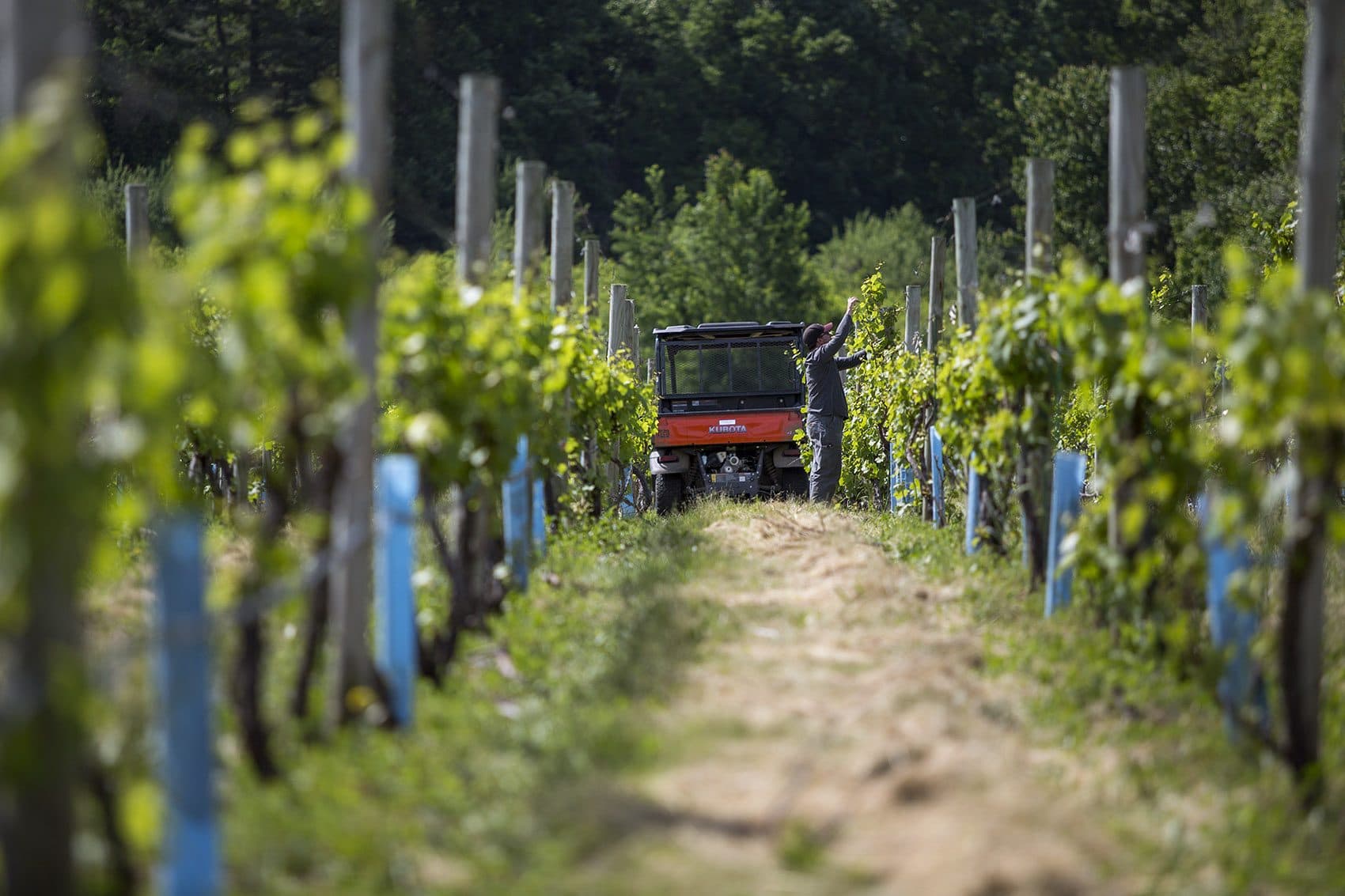
The popularity of "family-owned" and "locally grown" has made Massachusetts farms a vibrant business.
With orchards, vineyards, a winery and restaurant, the Nashoba Valley Winery in Bolton could be a poster child for agritourism.
But suddenly the state's Alcoholic Beverages Control Commission (ABCC) has announced it won't be renewing all the farm's licenses for making and pouring alcohol. Its owner, Rich Pelletier, says that's going to put the family farm out of business, so he's taking the regulators to court.
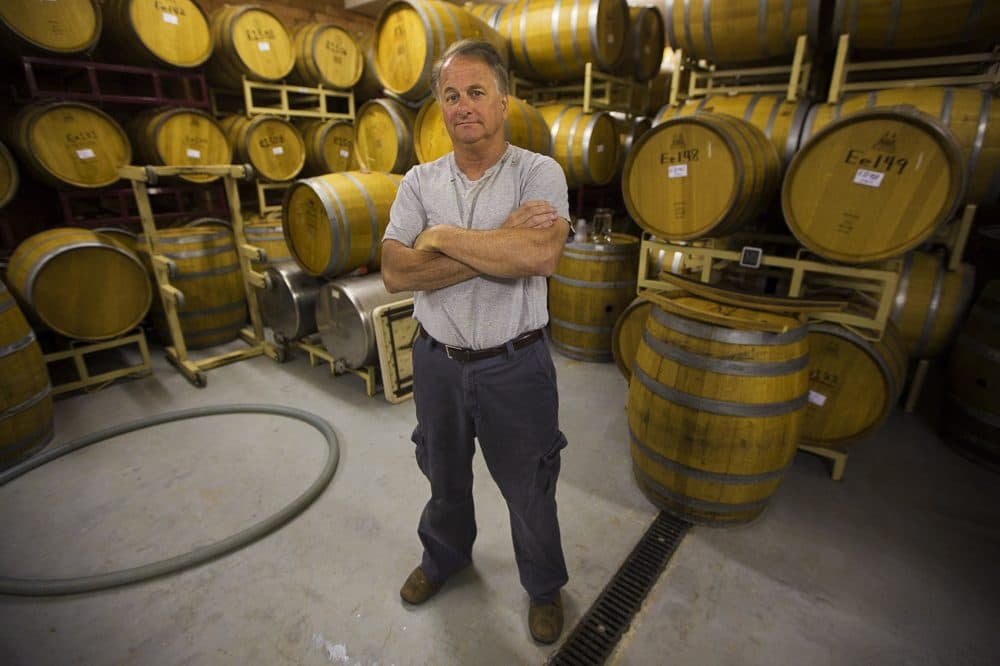
A Hilltop Orchard In Bolton
It doesn't look like a place facing what the judge in the case has called "an existential threat."
On the hilltop orchard overlooking Bolton, the Nashoba Valley Winery has been a turnaround success from the failing business a developer once proposed turning into 52 acres of McMansions.
In 1995, Pelletier came to look at the old farmhouse for sale out front and ended up buying the whole property — orchard, winery and all.
He had never farmed before, never ran an orchard. Pelletier had run a restaurant before, however.
So he turned that farmhouse into a restaurant to promote the orchard, winery and store.
"Here's the vision," Pelletier says. "It’s what they do in Napa. It's what's successful on the West Coast. We want to bring it to the East Coast."
He applied to the state's ABCC and obtained what's commonly known as a "pouring license" to serve his wine and beer at the restaurant.
To make wine as well as beer and spirits on the premises, Pelletier got three more licenses. They're called “farmer manufacturing licenses” because they were created with the intent of supporting local agriculture.
The business employs 50 people year round, 100 at peak season.
But this spring came a call from the ABCC. The commission informed Pelletier that Nashoba Valley Winery would not be getting all of its licenses for next year.
"If I file the restaurant license first, they won’t issue me my farmer's licenses. And if I file my farmer's licenses first, they won’t issue me my restaurant license," Pelletier says.
In a follow-up email, the ABCC pointed Pelletier to a section of state law that specifically prohibits owning a pouring license for a restaurant at the same time as owning a farmer's manufacturing license.
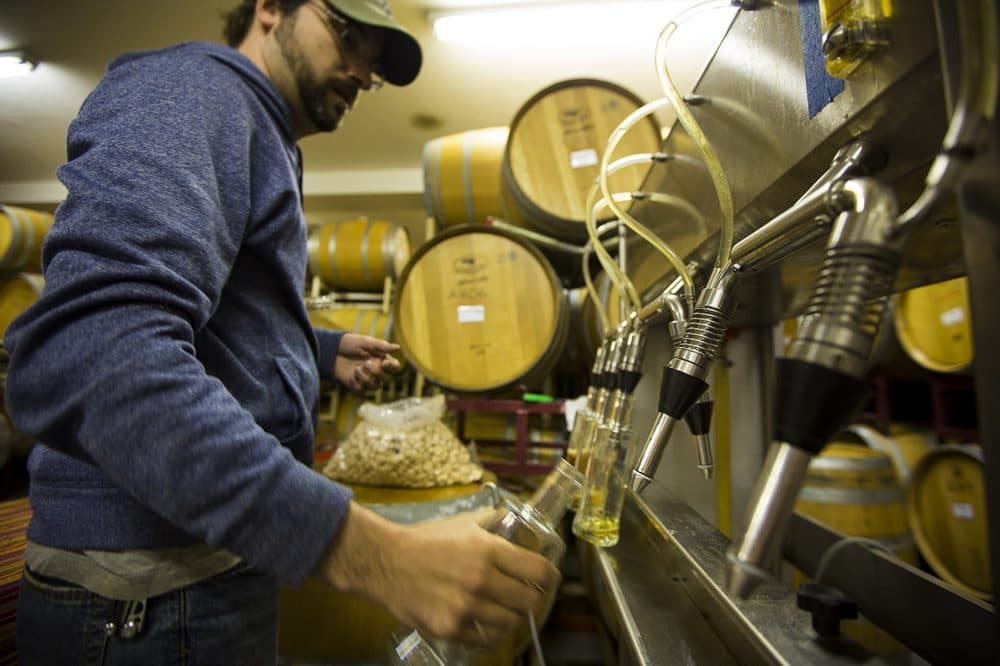
An Impractical Choice
In effect, the ABCC is giving Pelletier a choice. He can give up the pouring license and be left with a restaurant that can't sell his wine, or he can give up his manufacturing license and be left with a place called a winery that can't make wine.
Pelletier was stunned because every year for 16 years the same ABCC had been renewing his licenses like clockwork and without issue.
"The facts have never changed over the last 16 years," his attorney, John Connell, says.
Without any change in the law, the ABCC has made an apparent about-face in its interpretation of the law as it applies to the Nashoba Valley Winery.
Pelletier says it's a death sentence for his business model.
"You know, every option I look at is not viable other than closing down the restaurant," he says.
Pelletier says the ABCC wouldn't tell him why it changed after 16 years. And it would not talk to WBUR, citing the court case as its reason.
But the principle of alcohol control, going back to the end of Prohibition, is that manufacturers, typically big breweries, should not own restaurants.
Pelletier and his lawyer argue that Nashoba Valley is not the same. It's a farm, they say, and the ABCC is ignoring a section of state law passed in 2004 with the express intent to promote farms and farming.
Connell points to Chapter 138, Section 12, Paragraph 2.
"[It] expressly allows farms to have the right to pour its own wine at locations on the farm," Connell says. "And that section would seem to specifically authorize Nashoba Valley to pour at least its own wine at multiple locations on the farm as the town of Bolton designates, which they have done."
This would seem to be a solution to the problem -- by allowing wine to be poured at the restaurant. But the ABCC's response, says Pelletier's lawyer, is that wine can only be poured in the building where it is made, and since the restaurant is 50 feet away, it is not the same premises.

'Unjust And Unfair'
For a small business Republican like Pelletier, this is what the party means when it attacks excessive government regulation it claims is killing small business.
"There isn't any question with respect to the Nashoba Valley case that this constitutes over-regulation," Michael Connolly, a former secretary of state. "And that's someone who's a lifelong Democrat who's speaking to that particular issue."
Connolly knows the ABCC from his 10 years on the Boston Licensing Board. He says it's never moved out of "the dark ages."
"And after all the money invested and what's taken place, I just deem it to be unjust and unfair," Connolly says.
ABCC did make one suggestion, Pelletier says. "Yeah, they suggested that I circumvent the law by putting the restaurant in someone else's name," he says.
This would get around the problem by creating a straw owner, but would create a whole other set of zoning and legal and business problems, his lawyer says.
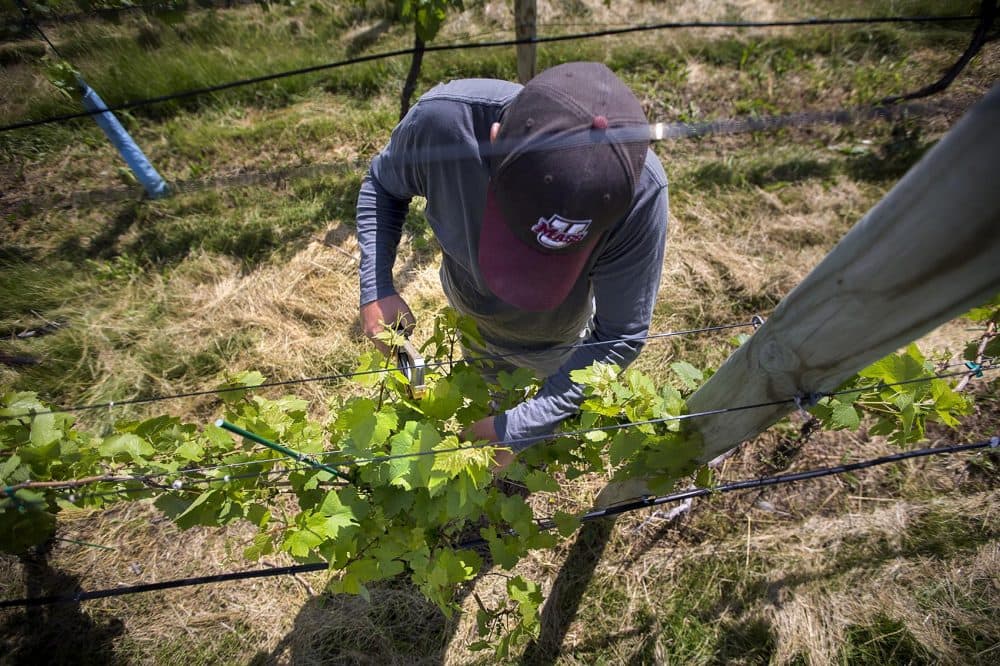
In Suffolk Superior Court last week, Pelletier sought to restrain the ABCC from withholding the renewal of his current licenses. The office of Attorney General Maura Healey, which defends state agencies and commissions, moved to dismiss Pelletier's complaint.
Because of the uncertainty whether he will have the proper ABCC licenses, Pelletier can not book weddings or functions for next year. So he's already losing money. He's already spent $15,000 in legal fees and there's a cloud over his million dollar investment.
"You know it's great that GE is coming into the state and we're willing to give GE thousands," Pelletier says. "I don't want any money. Rich Pelletier just wants to stay here and be left alone."
I ask him what he hopes the judge is going to do. He responds: "I hope he slaps them silly."
In its motion to dismiss, an assistant to Healey argues there is no controversy because Pelletier has not yet been denied any licenses. So he should wait until he has exhausted his "administrative remedies" before bringing the matter to court.
By that standard, Pelletier will need to wait until his licenses are denied. That will come at the end of the year when, Pelletier says, he will already have been forced to close either his restaurant or his winery.
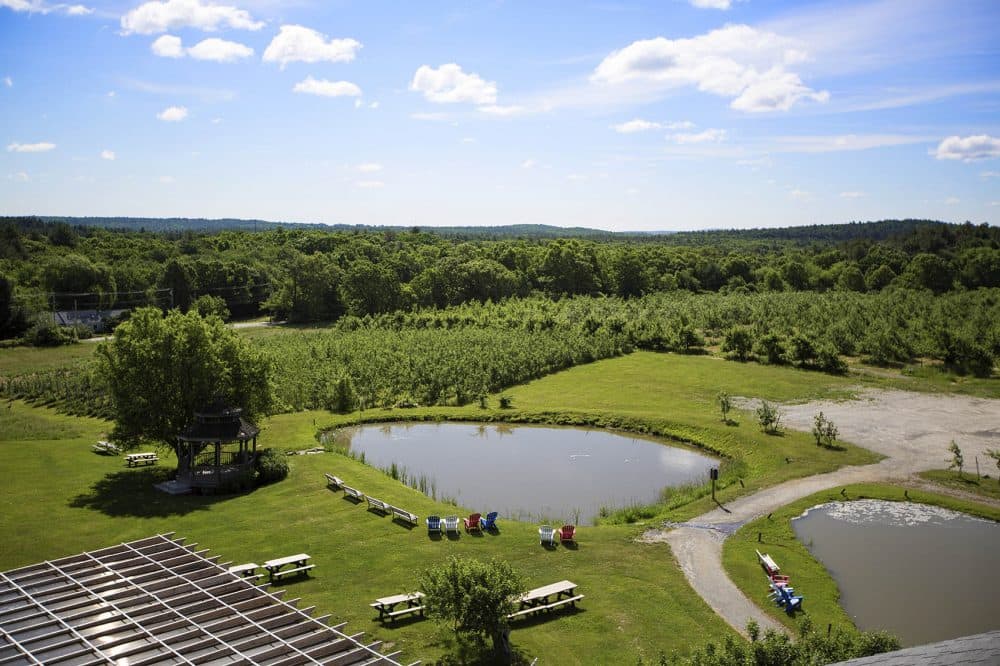
This segment aired on June 17, 2016.
